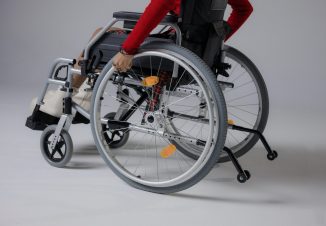
Since the 1969 Stonewall uprising in New York City, the month of June, known as ‘Pride Month’, has become a time to celebrate and raise awareness about the rights of lesbian, gay, bisexual, trans, queer, intersex, and asexual (LGBTQIA+) people.
Pride Month is also a good opportunity to take a look at the protection mechanisms adopted by Luxembourg to safeguard the rights of the LGBTQIA+ community in the workplace.
LGBTQIA+ themes include various notions that need to be clarified. Sexual orientation, identity and gender expression and trans-identity are very different notions. These concepts are defined and explained in the Guide to Transgender Inclusion in the Workplace. This guide was created by various associations that defend the rights of people from the LGBTQIA+ community in Luxembourg, in collaboration with the Ministry of Family, Integration and the Greater Region.
Sexual orientation is defined as the sex(es)/gender(s) towards which a person’s affinities, attractions and desires are turned. As a result, there are a multitude of sexual orientations: heterosexuality, homosexuality, bisexuality, pansexuality or asexuality.
Gender identity refers to the feeling of belonging to a gender that refers to the roles, status, rights and identities associated with a sex. On the other hand, gender expression refers to the way a person lives, presents themself to others and communicates about their gender.
Finally, transidentity refers to the situation where a person’s gender identity does not correspond completely or at all to the sex assigned to him or her at birth.
Luxembourg has long pursued non-discrimination and diversity policies that are in line with the respect for individuals’ fundamental rights and that demonstrate a will to create a more inclusive society, rights of each of whose members are respected. These include the National Action Plan for the promotion of the rights of lesbian, gay, bisexual, transgender and intersex people, created at the initiative of the Ministry of Family, Integration and the Greater Region and in collaboration with ten ministries that are committed to the implementation of this plan; and the Guide to Transgender Inclusion described above.
In this context, the LGBTQIA+ community are legally protected against any form of harassment or discrimination that may occur in the workplace, in the same way as any other employee.
Specifically, the Luxembourg Labour Code provides that any direct or indirect discrimination based on sex by reference, in particular, to marital or family status is prohibited. Since a law of 3 June 2016, it is now expressly provided that discrimination based on a change of sex is treated as discrimination based on sex. The notion of sex is not, however, explicitly defined in Luxembourg law and the Labour Code does not expressly mention the concepts of gender identity and gender expression.
In addition, Luxembourg labour law prohibits any direct or indirect discrimination based on sexual orientation.
The following forms of discrimination on the basis of sex, gender reassignment or sexual orientation are prohibited:
Any conduct that consists in directing anyone to discriminate against individuals, notably on the grounds of trans-identity or sexual orientation, is deemed to be discrimination.
The principle of equal treatment and non-discrimination applies to all employees regarding conditions of access to employment, access to all types and levels of professional training, vocational orientation, employment and working conditions, and membership of employees’ or employers’ organisations.
Please note: a difference in treatment based notably on a characteristic related to a person’s gender, gender reassignment or sexual orientation does not constitute discrimination when, due to the nature of a professional activity or the conditions of exercising that activity, the characteristic in question is an essential and determining professional requirement, as long as the objective is legitimate and the requirement is proportionate. There is, however, currently no case law on this exception in relation to gender, sexual orientation or gender reassignment.
For more information about discrimination



